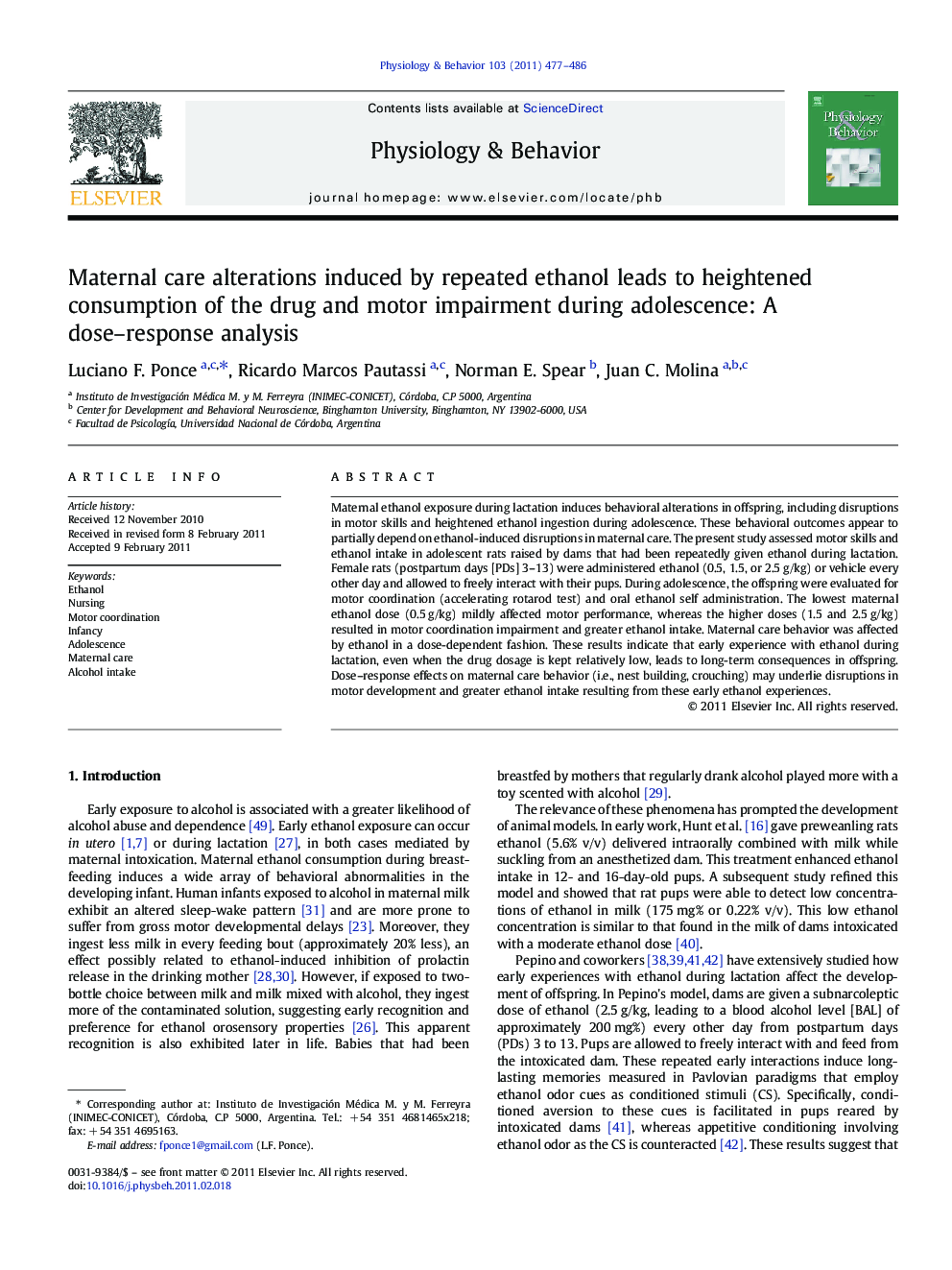| Article ID | Journal | Published Year | Pages | File Type |
|---|---|---|---|---|
| 5925754 | Physiology & Behavior | 2011 | 10 Pages |
Maternal ethanol exposure during lactation induces behavioral alterations in offspring, including disruptions in motor skills and heightened ethanol ingestion during adolescence. These behavioral outcomes appear to partially depend on ethanol-induced disruptions in maternal care. The present study assessed motor skills and ethanol intake in adolescent rats raised by dams that had been repeatedly given ethanol during lactation. Female rats (postpartum days [PDs] 3-13) were administered ethanol (0.5, 1.5, or 2.5Â g/kg) or vehicle every other day and allowed to freely interact with their pups. During adolescence, the offspring were evaluated for motor coordination (accelerating rotarod test) and oral ethanol self administration. The lowest maternal ethanol dose (0.5Â g/kg) mildly affected motor performance, whereas the higher doses (1.5 and 2.5Â g/kg) resulted in motor coordination impairment and greater ethanol intake. Maternal care behavior was affected by ethanol in a dose-dependent fashion. These results indicate that early experience with ethanol during lactation, even when the drug dosage is kept relatively low, leads to long-term consequences in offspring. Dose-response effects on maternal care behavior (i.e., nest building, crouching) may underlie disruptions in motor development and greater ethanol intake resulting from these early ethanol experiences.
Research highlights⺠Administration of ethanol to lactating dams induced dose-dependent disruptions in maternal care repertoire. ⺠Adolescents reared by dams treated with high-dose ethanol exhibited motor coordination impairments. ⺠Adolescents reared by dams treated with high-dose ethanol exhibited enhanced ethanol intake and preference. ⺠Adolescents reared by dams treated with low-dose ethanol exhibited mild motor coordination impairments. ⺠Long-term effects of early rearing by an alcohol intoxicated dam may relate to differential level of alterations in maternal care repertoire.
